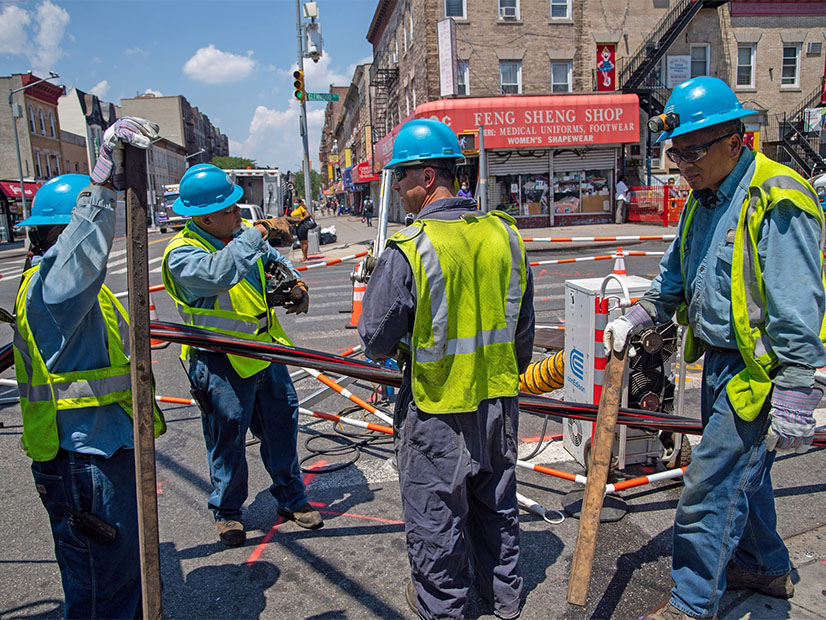Consolidated Edison has been cleared to undertake another major system upgrade to meet growing electricity demand in New York City.
Consolidated Edison has been cleared to undertake another major system upgrade to meet growing electricity demand in New York City.
The state Public Service Commission on Jan. 18 authorized the utility to proceed with its Idlewild Project, a $1.2 billion package that will add two substations and an electrical network in southeast Queens (22-E-0064).
It is part of Con Edison’s Reliable Clean City initiative, through which the utility separately is making an $800 million investment in infrastructure. Those upgrades; the Idlewild Project; and the $810 million Clean Energy Hub the PSC authorized in 2023 all are designed to enable and prepare for the clean energy transition and its greater demand for electricity. (See Con Ed Completes 300-MW Line for Cleaner NYC Grid and NY PSC Approves $810M Con Ed Clean Energy Hub in Brooklyn.)
Con Edison serves one of the most expensive and densely built places in the nation, and the cost of transitioning from fossil fuel to electricity likely is to be quite high. In a mid-2023 update, it valued its present investment plan at $11.8 billion.
Commissioner Diane Burman cited the financial impact on New Yorkers from the ongoing series of expensive projects statewide before she cast the lone dissenting vote on the Idlewild Project at Thursday’s meeting.
“I do not think it is sustainable, as we do more electrification — whether it is this company’s territory or other companies’ — that the ratepayers bear the bulk of this,” she said.
In its petition, Con Edison said the Jamaica service network is the largest among its networks electrically and has the highest peak demand. The utility predicts that without changes, peak demand could exceed its 492-MW design capacity by as much as 6 MW in 2026, 30 MW in 2030 and 51 MW in 2032, with peak load shedding starting in 2028.
It proposed to split the Jamaica network into two pieces; build two substations; and transfer 170 MW to the Idlewild Project.
The work not only will address reliability needs as buildings and transportation are electrified but create points of interconnection for future clean energy projects and for the energy storage the utility seeks to add in the area.
Con Edison said it considered non-wire alternatives to the proposal and is pursuing them for 2026-27, but they will be insufficient to meet anticipated growth in the Jamaica network.
Con Edison also said transferring load to neighboring substations was not an option, as they, too, are at capacity. The network includes the nation’s sixth-busiest airport, third-busiest train station and four major bus depots with a combined 700 buses. The Metropolitan Transportation Authority plans to electrify its bus fleet, most of the trains already are electrified, and the Port Authority of New York and New Jersey has set a net-zero emissions target for John F. Kennedy Airport.
In a news release, Con Edison flagged the gradual electrification of medium- and heavy-duty fleets in the area as a driving force behind the Idlewild Project and said air quality would improve as a result.
“By investing in our Reliable Clean City-Idlewild project,” CEO Tim Cawley said, “we are building New York’s clean energy infrastructure while creating good jobs, advancing New York’s climate goals and ensuring that our grid remains reliable for customers in Southeast Queens for decades to come.”
The project budget breaks down to three components:
-
- The new Idlewild Distribution Area Substation, estimated cost $380 million, target in-service date May 2028;
- The new Eastern Queens Transmission Substation, estimated cost $592 million, in-service date April 2028; and
- The new Springfield Network, cost $242 million, in-service date not specified.
Con Edison serves 3.6 million customers in the five counties of New York City and a suburban county to the north.




